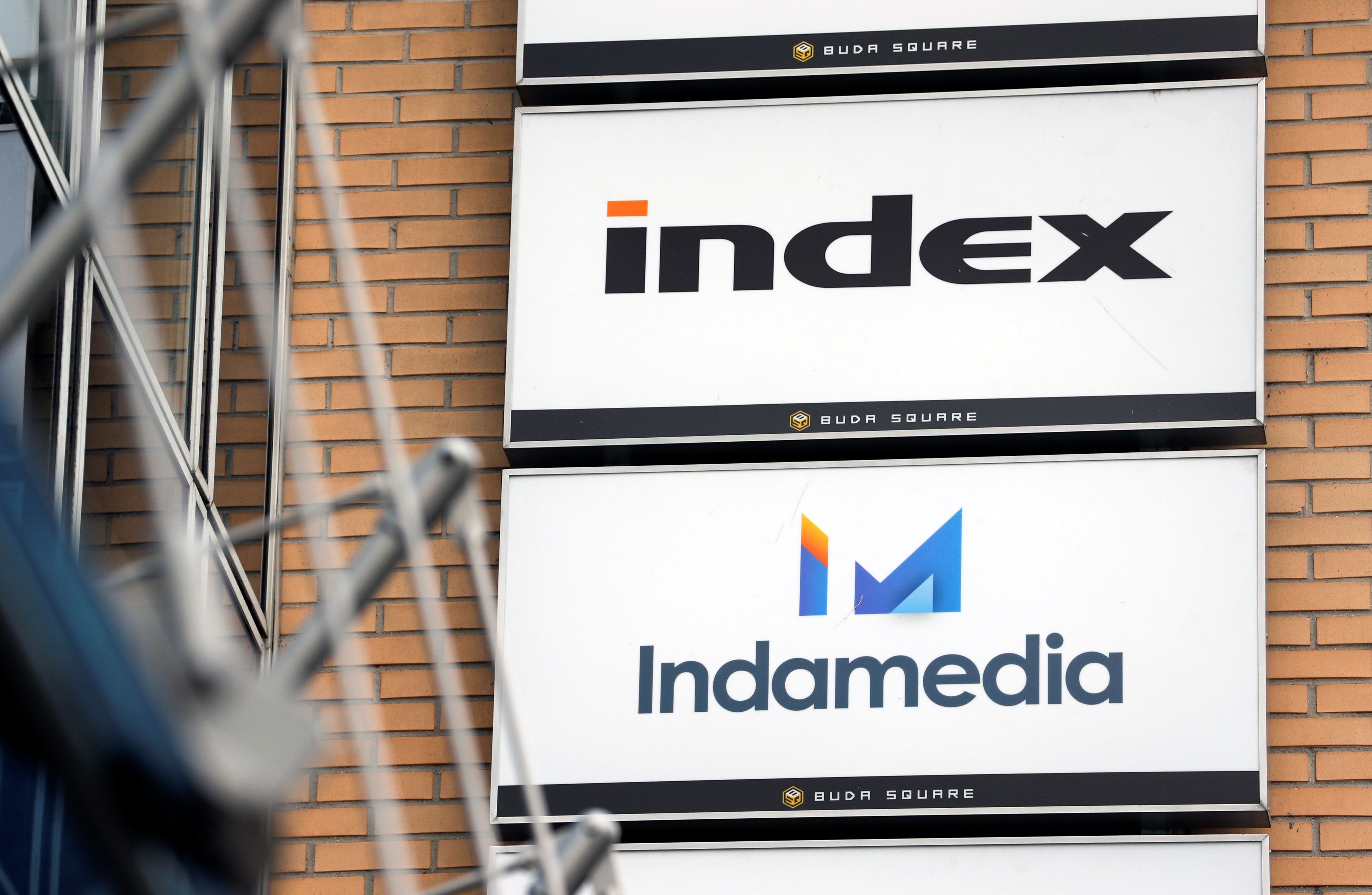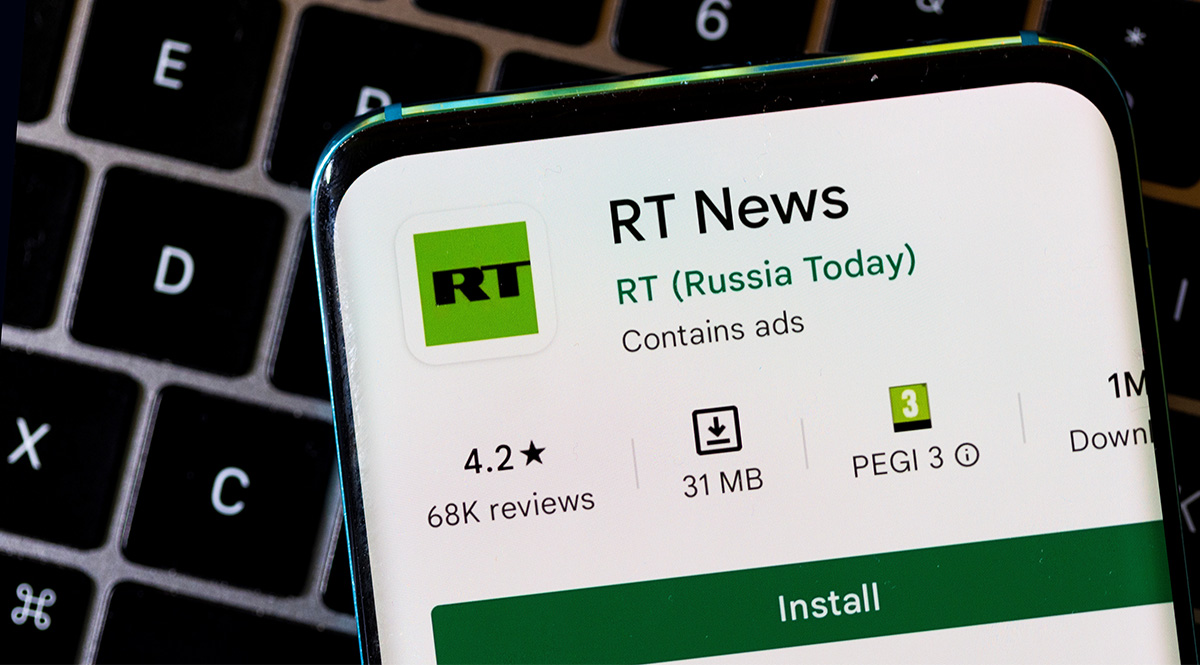Protection of Media Freedom Provokes Debate in the EU
The discussion on the recently adopted European Media Freedom Act (EMFA) divided the EU institutions, Member States, and publishers. Controversies include whether there even is a need for the new law and the possibility for the authorities to wiretap journalists and remove content from online platforms. Although the EMFA contains guarantees for media independence, such as those related to the transparency of their funding, its effectiveness is undermined by leaving a wide margin of discretion to EU states on such issues as the concentration of media companies.
%2025%20czerwca%202024%20r.jpg) Janusz Fila / Forum
Janusz Fila / Forum
Background of the Proposal
Norway tops the 2024 Reporters Without Borders World Press Freedom Index, followed by EU members Denmark, Sweden, the Netherlands, and Finland. However, problems in this sphere manifest themselves on a varying scale in many other EU countries. Among EU members, Greece has the lowest ranking (88th out of 180), in part because of the use of Pegasus software to spy on journalists and for the murder of Giorgos Karaïvaz, which has remained unexplained since 2021 (murders of investigative journalists covering relationships of public officials and politicians with the criminal world also occurred in 2017 in Malta and in 2018 in Slovakia). Hungary’s Fidesz effectively controls 80% of that country’s media, and excessive concentration of the media market is also observed in Croatia, Czechia, France, Poland, Slovenia, Italy, and several others. In the spring of this year, the Slovak authorities announced legal changes that will in practice limit the independence of radio and television. The rule-of-law backsliding in some EU Member States has led some media to disseminate pro-government narratives and resulted in restrictions on pluralism (e.g., through protracted licensing procedures for private stations) and on the independence of regulators. EMFA is intended to counteract these problems in the EU.
Media regulation has so far taken place mainly at the national level. The Council of Europe has little influence and although its Committee of Ministers has issued recommendations on the functioning of public media and the bodies that regulate them, it does not have the tools to enforce them. For several years, the EU has been more active in this sphere. In 2018, it adopted the Audiovisual Media Services Directive (AVMSD), in 2021 it published recommendations to enhance the safety of journalists and other media professionals, and in 2022 passed the Digital Services Act (DSA) and Digital Markets Act (DMA). In March this year the Union adopted the “Anti-SLAPP” Directive to protect, among others, journalists and media from unjustified lawsuits aimed at intimidating them. In addition, since 2020 the European Commission (EC) has monitored media freedom as part of its rule-of-law reports on individual EU countries. Although it has the competence to control the concentration of companies at the EU level, the Commission has been cautious about using this tool in relation to media, explaining it as lacking a clear legal basis.
Main Provisions
On the basis of the EMFA (regulation of the European Parliament and of the Council of 11 April 2024), EU members are obliged to guarantee pluralism and independence of media and their management, as well as not restricting adequate funding of them. The allocation of public funds to media and online platforms is to be done without discrimination, proportionally, and on the basis of open criteria. Public institutions and companies are obliged to report on their advertising expenditure and their beneficiaries, to facilitate control over their influence on the content of publications. EMFA also bans interference in editorial decisions, limits public advertising, and sets an obligation for media outlets to disclose their ownership structure and sources of funding.
Also on the basis of the EMFA, the European Board for Media Services (EBMS) was established, bringing together representatives of the national media authorities of EU countries. Among other things, it is supposed to counteract the formation of monopolies by issuing opinions on media concentration in national markets and to support the EC in preparing guidelines for the better application of EMFA. The Board will also coordinate national regulations applied to non-EU media to combat their circumvention of the law and threats to public safety. It will replace the European Regulators Group for Audiovisual Media Services (the so-called ERGA) created under the AVMSD, which had a narrower remit, as it did not cover press and radio.
Disputes Around EMFA
In last year’s negotiations of EMFA, Hungary, Poland, France, Germany, Denmark, and Belgium opposed it, while Portugal and the Netherlands, for example, were in favour. The authorities of media-interfering countries feared a reduction in their influence, while the states with strong guarantees of media independence were concerned that the adoption of common regulation would disrupt the smooth functioning of their systems. Germany accused the EU of not acting subsidiarily in this area, and the Council’s lawyers had to confirm the EU’s competence to adopt the act by pointing out that it was based on internal market rules and not on culture, which remains the competence of the Member States.
The possibility for authorities to eavesdrop on journalists and use intrusive surveillance software, for example, to reveal their sources, also caused a dispute. The EC draft allowed use of such software only in exceptional situations justified by the public interest, for example, in investigating terrorism or human trafficking, and some countries—mainly France—wanted to extend this. In contrast, the EP and NGOs, such as the International Press Institute, wanted greater limits on state interference. The adopted compromise allows the use of tools such as Pegasus only with court authorisation and only when prosecuting the most serious cases, while the target will have the right of appeal. This solution was criticised by some in the EP, who felt that it still left too much scope for the surveillance of journalists.
Another controversy was the moderation of content on very large online platforms, such as the removal of disinformation by X, Facebook, or Instagram. Platforms must inform the media provider first, who generally will have 24 hours to respond, as called for by the EP. However, the Council opted for immediate deletion of harmful content; the Baltic States pointed out that any delay in deletion promotes the spread of disinformation online.
EMFA Assessments
The adoption of EMFA is seen as a success by NGOs, such as Reporters Without Borders, but publishers’ associations fear that this legislation will not sufficiently limit the possibility of government interference in their activities and will undermine national standards of protection. According to them, achieving media freedom and pluralism is not possible by harmonising regulations (it may even be counterproductive) because the root of the problem lies in the political and economic situations of individual EU states. Although most of the EMFA provisions will only be applied from 2025 onwards, the act is already perceived as insufficient, for example, the EC and EBMS have not been given real power to block the concentration of media companies. Publishers also criticise, among other things, the submission of their activities to EBMS control. EMFA does not introduce new solutions to ensure the independence of national media regulators and or of the council they form. According to publishers from Belgium, France, Germany, Poland, and others, EMFA also does not introduce sufficient protection of freedom of expression, for example, it does not prevent potential censorship by major online platforms and allows the publisher to set the editorial line, which limits the autonomy of journalists.
Conclusions and Perspectives
EMFA is set to become another tool to protect the rule of law and combat disinformation in the EU, but while needed, it is a solution that is belated and insufficient, especially for states that have already compromised media independence. While some argue that EMFA will result in the lowest common standard, the act explicitly allows states to adopt a higher level of protection. However, its potential positive effects are undermined by leaving too much discretion to EU states and their bodies. With regard to media company concentrations, for example, it would be better to subject them to antitrust procedures conducted by the EC, which offers stronger guarantees of independence than national authorities. However, the implementation of such a solution in the coming months is unlikely due to opposition from states and the post-election institutional cycle in the EU. EMFA can therefore be seen as a step towards improving the independence of media outlets, especially by increasing the transparency of their funding, but it would be beneficial for EU institutions and states to make further efforts in this direction. In order to raise standards in this area, Poland and other EU countries can use the cooperation offered through EBMS to exchange good practices.





